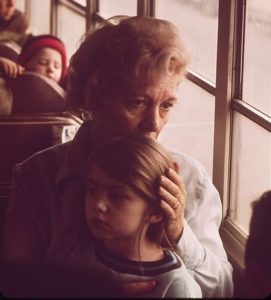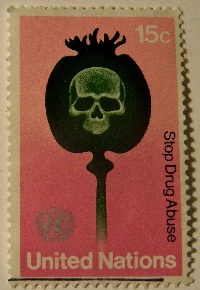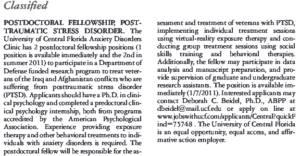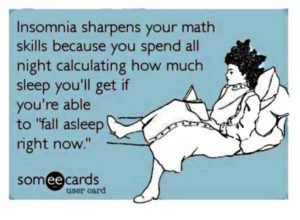Find a CBT Therapist
Search through our directory of local clinicians.
2017 Featured Articles Archive
 Congratulations Dr. Craske
Congratulations Dr. Craske
Professor Michelle G. Craske at UCLA is the recipient of the 2017 the Society for a Science of Clinical Psychology (SSCP) Distinguished Scientist Award. This award is made to individuals who have made an extremely important career contribution to the science of clinical psychology and represents the highest award that SSCP can give. Michelle is the immediate past-president of ABCT, a former president of SSCP, and chaired the Anxiety Disorders subgroup for DSM-5. She is an acknowledged leader in the psychopathology and treatment of the anxiety disorders and in recent years has extended her work to depression as well. She is without question one of the best and the brightest in the field and we are honored to make this presentation.
 CBT Helps Psychosis
CBT Helps Psychosis
New study finds that, When added to medication management visits, CBT interventions improve the therapeutic alliance, reduce stigma associated with psychosis, build skills to self-monitor and manage symptoms, reduce reliance on medication, and promote recovery.These interventions reinforce skills learned by patients Psychiatrists will find the extra few minutes spent with the patient to be personally enriching and professionally satisfying while improving outcomes and satisfaction for patients and their families. interventions psychosis.

The Portland Tribune featured an article on childhood anxiety, trying to find a way to walk the
line between normal worry, you know, about school, clothes, what Suzy thinks, and anxiety that interferes with their functioning and their joy. There are some good tips here, including one on social media: “Social media has been particularly rough on children, especially when it’s being utilized negatively…. Not only is it important to monitor your child’s online activities; it’s also important to watch how they react to what they are doing online.” to read the entire article, see worried about your childs mood. For more on anxiety, see our fact sheets on anxiety, bullying and how to choose a CBT therapist.
Dealing with Social Anxiety
 It’s two months of parties coming up with the holidays, what with turkeys and wreaths and that ball that drops once a year. For those of us with social anxiety, that’s scarier than the holiday just passed. One magazine has a number of tips from several experts in the field. And, as you’ll read in the final recommendation, all the experts recommend CBT if that anxiety is getting in the way of your life: how overcome social anxiety without-alcohol. For more information on anxiety, social anxiety, and CBT, see ANXIETY, SHYNESS and GUIDELINES CHOOSING. Or, to find a threapist to help, see http://www.findcbt.org.
It’s two months of parties coming up with the holidays, what with turkeys and wreaths and that ball that drops once a year. For those of us with social anxiety, that’s scarier than the holiday just passed. One magazine has a number of tips from several experts in the field. And, as you’ll read in the final recommendation, all the experts recommend CBT if that anxiety is getting in the way of your life: how overcome social anxiety without-alcohol. For more information on anxiety, social anxiety, and CBT, see ANXIETY, SHYNESS and GUIDELINES CHOOSING. Or, to find a threapist to help, see http://www.findcbt.org.
CBT reduces anxiety, panic
Targeted CBT reduces anxiety and panic. An article in the Irish Times, posits that “The first insight is that anxiety pathways in our brain can be reshaped by our mind – a process called neuroplasticity. This is best done with the harnessed use of our mind. Targeted CBT exercises can reshape our anxious mind and, in turn, the very anxiety pathways creating the problem.” There’s much more in panic attacks and social anxiety.
Addiction Interdiction
 A new preventative antidrug program identifies the traits that put children and adolescents at risk for addiction. Teachers and students are taught CBT skills to cope with the underlying emotional issues related to increased risk of addiction. The New York Times article explores the traits and how they are often not the ones that seem apparent. Read more:
A new preventative antidrug program identifies the traits that put children and adolescents at risk for addiction. Teachers and students are taught CBT skills to cope with the underlying emotional issues related to increased risk of addiction. The New York Times article explores the traits and how they are often not the ones that seem apparent. Read more:
BT for Sleep
 Behavior Therapy was shown to be a better first choice for help in reducing sleeplessness than pills. The results and details can be found in an article in Psychiatric News
Behavior Therapy was shown to be a better first choice for help in reducing sleeplessness than pills. The results and details can be found in an article in Psychiatric News
Binge-eating disorder can be treated with talk therapy or drugs
 Reuters followed up on a meta-analysis published in the Annals of Internal Medicine, and reported that a research team led by Kimberly Brownley of the University of North Caroline at Chapel Hill conducted a meta-analysis of studies using CBT, second-generation antidepressants and the amphetamine, lisdexamfetamine (Vyvanse) for treatment of binge-eating disorder, all of which have been deemed effective. Researchers highlight the success of CBT in changing the associated thoughts and resulting behaviors of binge-eating disorders.
Reuters followed up on a meta-analysis published in the Annals of Internal Medicine, and reported that a research team led by Kimberly Brownley of the University of North Caroline at Chapel Hill conducted a meta-analysis of studies using CBT, second-generation antidepressants and the amphetamine, lisdexamfetamine (Vyvanse) for treatment of binge-eating disorder, all of which have been deemed effective. Researchers highlight the success of CBT in changing the associated thoughts and resulting behaviors of binge-eating disorders.
Classified
POSTDOCTORAL FELLOWSHIP, POST-TRAUMATIC STRESS DISORDER

Therapuetic Approaches for Insomnia
 Psychiatric Times discusses a therapeutic approach that combines elements of common treatment approaches for bipolar disorder. Referred to as CBT-IB (cognitive-behavior therapy for insomnia & bipolar disorders), this approach combines elements of CBT for insomnia, social rhythm therapy, chronotherapy, and motivational interviewing. To break it down, this therapy incorporates sleep hygiene, regular sleep and wake routines, integration of therapeutic light and darkness to address circadian rhythms. The article acknowledges the limited research dedicated to this combined approach, but is still worth a read. CBT-IB: A Bipolar-Specific, All-Around Psychotherapy. For more on insomnia and how sleep is affected, see our excellent fact sheet on Circadian Rhythms
Psychiatric Times discusses a therapeutic approach that combines elements of common treatment approaches for bipolar disorder. Referred to as CBT-IB (cognitive-behavior therapy for insomnia & bipolar disorders), this approach combines elements of CBT for insomnia, social rhythm therapy, chronotherapy, and motivational interviewing. To break it down, this therapy incorporates sleep hygiene, regular sleep and wake routines, integration of therapeutic light and darkness to address circadian rhythms. The article acknowledges the limited research dedicated to this combined approach, but is still worth a read. CBT-IB: A Bipolar-Specific, All-Around Psychotherapy. For more on insomnia and how sleep is affected, see our excellent fact sheet on Circadian Rhythms
Gerald Patterson, in Memoriam
 Gerald Roy Patterson left us on August 22nd, 2016, surrounded by his family. Jerry was born in North Dakota to a family that worked on the railroad and in the iron mines; he grew up in northern Minnesota, where his love for nature developed. After receiving his doctorate from the University of Minnesota, Dr. Patterson became one of the first investigators to develop empirical measurements of family interactions and propose and test new theories and evidence-based treatments for troubled families with that data.
Gerald Roy Patterson left us on August 22nd, 2016, surrounded by his family. Jerry was born in North Dakota to a family that worked on the railroad and in the iron mines; he grew up in northern Minnesota, where his love for nature developed. After receiving his doctorate from the University of Minnesota, Dr. Patterson became one of the first investigators to develop empirical measurements of family interactions and propose and test new theories and evidence-based treatments for troubled families with that data.
Dr. Patterson’s many awards include a Presidential Citation and the Distinguished Scientist Award from the American Psychological Association, the Outstanding Achievement Award from the University of Minnesota, an honorary doctorate from the University of Norway, a Lifetime Achievement Award from the International Society for Research in Aggression, and a Merit award from the National Institute of Mental Health for excellence in research.
ABCT and APA past president Dr. Alan Kazdin said, “… Gerald R. Patterson’s contributions to psychology include widely-cited coercion theory, early leadership in the behavior therapy movement, ground-breaking and paradigmatic research on aggression and antisocial behavior, and the development and empirical testing of parent management training.”
He is the founder of the Oregon Social Learning Center in Eugene, where he continued to work until the last. He has devoted more than 40 years to the study of processes that disrupt family functioning and the development of “coercion theory,” a data-based schema that explains these processes.
His books on parenting, “Families, Living with Children” and “Parents and Adolescents” have been read by millions. He has published over 200 hundred peer-reviewed articles, dozens of book chapters, and books on parenting, the outdoors, as well as poetry.
Jerry is survived by his wife, Marion Forgatch; his five children; and five grandchildren.
Three things I learned about anxiety by giving a TED talk about anxiety
 Steve Hayes shares his experience, and his pain, while showing his TED talk
Steve Hayes shares his experience, and his pain, while showing his TED talkSuicide Rates Increasing
 NPR features an article that highlights increasing suicide rates. Their article focuses on troubling increasing rates, especially heartbreaking among adolescent girls. It also points to the need to increase access to services for youth of all ages and socio-economic strata. And it speaks to screening for early intervention and prevention, which is not something that we do regularly, consistently, or comprehensively in the US. It speaks to the continued stigmatization of persons with mental health problems that prevent them from seeking help. And, it speak to the lack of evidence-based treatments, like CBT and DBT, being available in the community. To see the article
NPR features an article that highlights increasing suicide rates. Their article focuses on troubling increasing rates, especially heartbreaking among adolescent girls. It also points to the need to increase access to services for youth of all ages and socio-economic strata. And it speaks to screening for early intervention and prevention, which is not something that we do regularly, consistently, or comprehensively in the US. It speaks to the continued stigmatization of persons with mental health problems that prevent them from seeking help. And, it speak to the lack of evidence-based treatments, like CBT and DBT, being available in the community. To see the article
CBT for ADHD Getting More Play
 The implications of treating kids with ADHD with CBT first is getting lots of play in more specialty conduits well beyond CBT’s traditional reach. The topic got lots of play when Ben Carey of the New York Times highlighted a pair articles that demonstrated the utility of CBT in treating ADHD. What’s fascinating is that other areas, like a site dedicated to kids with learning disorders, has picked it up
The implications of treating kids with ADHD with CBT first is getting lots of play in more specialty conduits well beyond CBT’s traditional reach. The topic got lots of play when Ben Carey of the New York Times highlighted a pair articles that demonstrated the utility of CBT in treating ADHD. What’s fascinating is that other areas, like a site dedicated to kids with learning disorders, has picked it up
The blog ends with this cutting remark: �I think this is a very important study, and the take-home is that low-cost behavioral treatment is very effective,� said Mark Stein, a professor of psychiatry and pediatrics at the University of Washington, �but the irony is that that option is seldom available to parents.

